Celebrating the Kindness of Ultra-Orthodox Charities
"It wasn't just a random choice to organize a tribute conference for ultra-Orthodox charitable organizations," says Member of Knesset Galit Distel. She firmly believes the ultra-Orthodox community contributes more than any other, regrets they're often seen as shirkers by the general public, and promises: "I will continue to work towards unity, in every possible way."
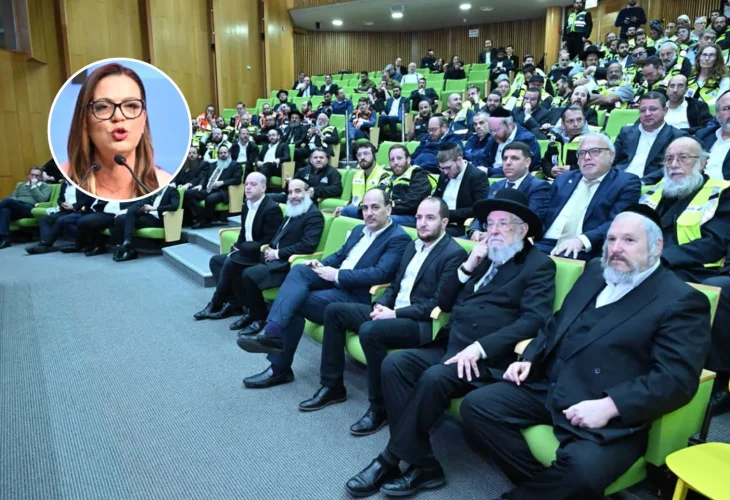
This week, while a "Tribute Conference for Ultra-Orthodox Charitable Organizations" was held in the Knesset, initiated by Member of Knesset Galit Distel Atbaryan, another nearby conference was discussing the so-called "shirking ultra-Orthodox."
"Although I approached all the religious correspondents, they preferred to attend the other conference, not the tribute for the charitable organizations," Distel notes. "Honestly, it was very disappointing. I organized the event to show the positive aspects of the ultra-Orthodox sector and to tell the amazing story of the charities and organizations working within it. Unfortunately, it seems, not many people are interested in that.
"As time goes on, I understand that I'm quite alone in this fight. Nevertheless, I do not intend to give up. Even when the religious reporters didn't show up, we made sure to film and disseminate the event on social networks to reach as many people as possible. I believe this is the way forward, to continue acting, because we mustn't leave the ultra-Orthodox community alone in this battle."
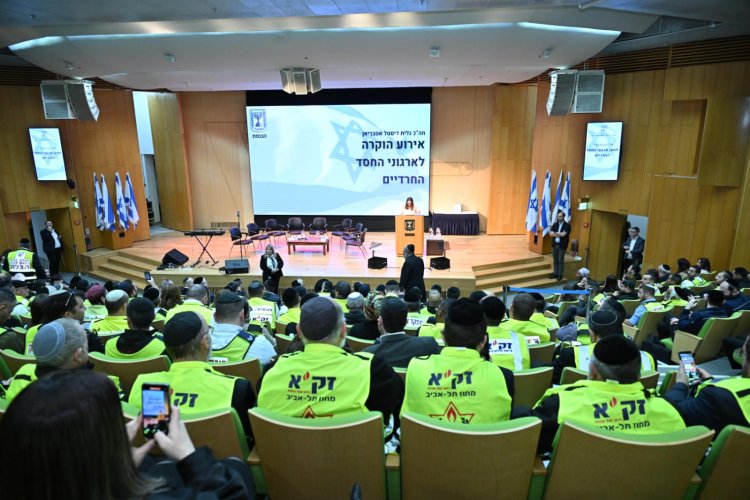
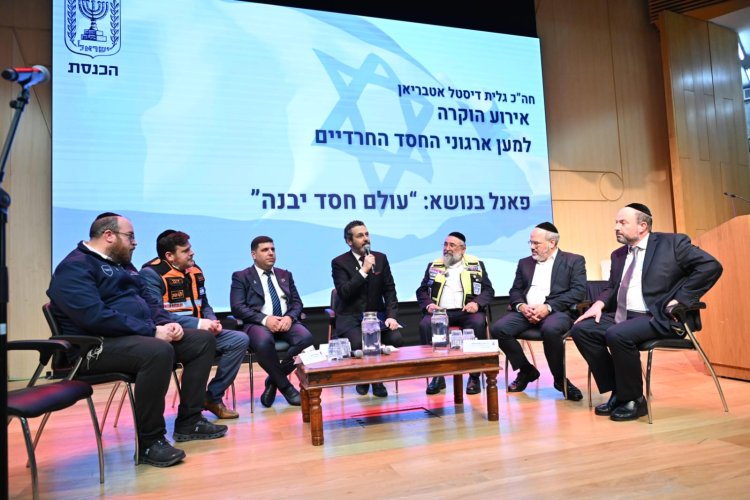
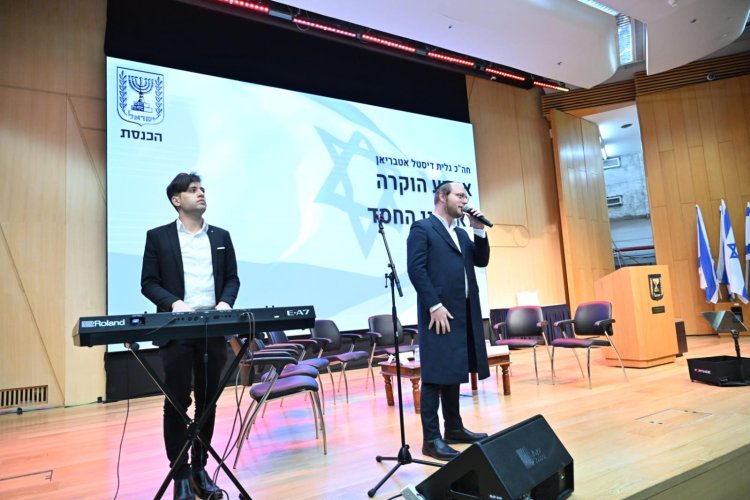
In Every Walk of Life
The conference organized by Distel this week was indeed different and unique. Representatives from 32 organizations participated, filling a 400-seat auditorium to capacity. "As a Member of Knesset, I have the opportunity once a year to invest in a major event, and it was clear to me that I would use it to initiate a tribute for ultra-Orthodox charities," she explains. "In my opinion, the fact that such a conference hasn't taken place until today is shameful because it should have happened long ago."
Distel speaks with admiration as she points out, "You can actually see how, in every aspect of human life, in every moment of human distress, the first to volunteer will be ultra-Orthodox organizations.
"Need a bone marrow donation? Turn to an ultra-Orthodox organization with the largest donor registry; stuck with a flat tire in the middle of the night? An ultra-Orthodox organization will offer you 66,000 volunteers across the country ready to assist. Sitting by a hospital bed of a sick family member and haven't seen home for a week? Someone will immediately bring you a hot, cooked meal in the middle of the night.
"There are also life-saving medications not funded by HMOs, and the ultra-Orthodox organizations help with that. There's even an ultra-Orthodox organization that continually helps lone soldiers, and 3,500 ultra-Orthodox women who go once a week to the homes of women whose husbands are in the reserves to fold laundry, clean houses, and take care of children. And no, they never check if the family is religious or secular—it's all about helping everyone. And I haven't even mentioned organizations like ZAKA, United Hatzalah, and many other truly life-saving organizations."
"When you gather all this activity into one hall, you suddenly realize the magnitude and strength of it," Distel explains, "and you tell yourself that the claim that ultra-Orthodox are parasites, shirkers, and exploiters is simply not true. This is not an exploitative or shirking community, but one that prioritizes helping others above all. At this time, when there are so many accusations against the ultra-Orthodox evading military service, it's essential to be more aware of their living conditions, as they don't avoid enlistment out of selfishness but rather because of real distress that needs addressing."
Do you believe this message can reach those outside the religious sector?
"As I've mentioned, I saw the responses of religious correspondents from all channels who showed no interest in a conference dedicated solely to the ultra-Orthodox. It's quite clear to me that I'm alone in this arena, but I circumvent the media and showcase the activities on social networks. I feel this is my duty now. I've always thought that efforts must be made to connect and bond sectors, and since the outbreak of the conflict, it's clear that we must treat each other differently."
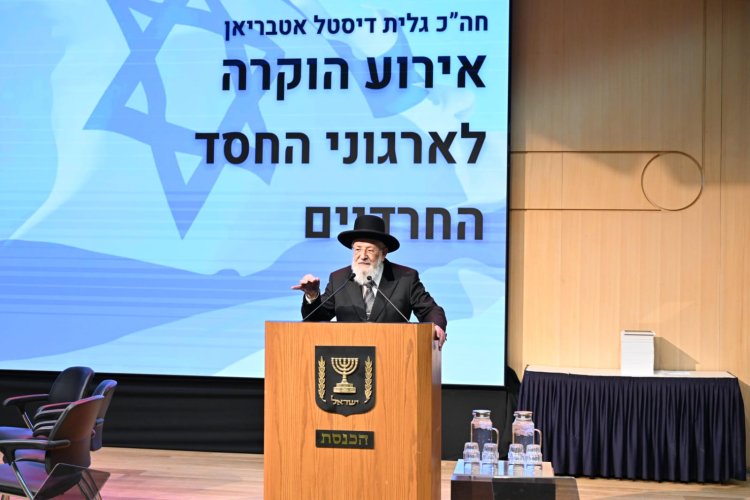
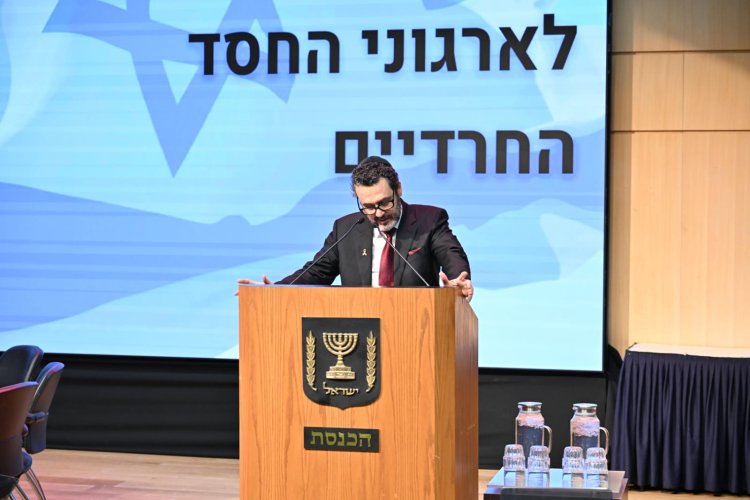
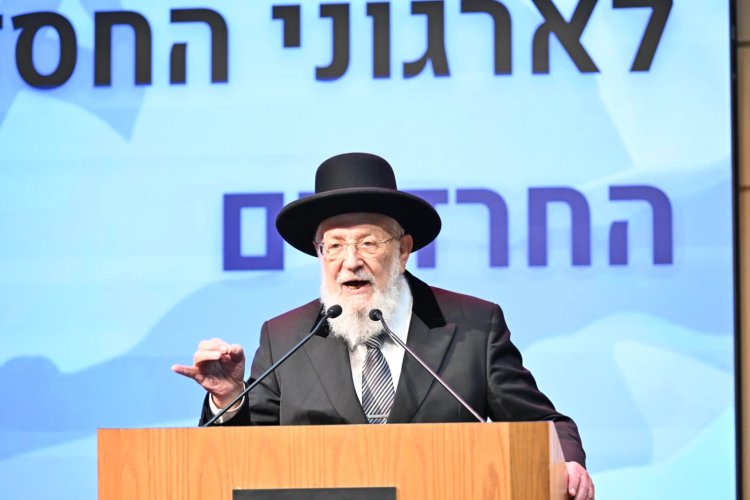
Fears for the Future
"Among all the organizations that participated in the event, there was one missing," Distel notes. "That's the charity organization made up of all the young men and students now sitting in synagogues and yeshivas studying the Talmud and Mishnah, because if they don't study Torah for us, who can we rely on? It is a human project unparalleled in any other culture, and we must continue to support it."
You know not everyone in the government agrees with you, right, not even all in your own party…
"That's right, but I want to highlight something not well known: there's a very deep connection between the ultra-Orthodox and traditional communities, deeply embedded in the soul, as Rabbi Shach once put it—'there is a covenant between the ultra-Orthodox and the traditionalists.' I can share about myself—I grew up in a traditional home where we went to the beach on Shabbat, but we also made kiddush and ate kosher, and the ABCs I was taught included deep respect for the ultra-Orthodox. So, while not every secular person is traditional, among traditionalists, many feel exactly like I do."
Is there anything practical that could, in your opinion, improve the situation?
"Only opening hearts and talking. I know the impact of incitement against a person or group, and I know that this incitement works. Therefore, my main message to the public is to try as much as possible to maintain respectful discourse, because only when you sit together and listen can you understand everyone's claims and respond accordingly. The mistake is that people don't put enough effort into developing dialogue and being together. The secular public approaches from the get-go with aggression and sanctions, and the ultra-Orthodox retreat inward, and I understand them."
Are you optimistic? Do you believe change can ultimately happen?
"I'm not really optimistic; I'm very worried about the future because I know that even if the ultra-Orthodox enlist, it won't calm tensions, as there will always be ongoing complaints against them: 'Why separate men and women?' 'Why invest so heavily in adapting units to ultra-Orthodox lifestyles?' and more. But I also wholeheartedly believe that Hashem is guiding us and wants us to reach better days. So yes, there will still be better days, and until then, I promise to keep working."

